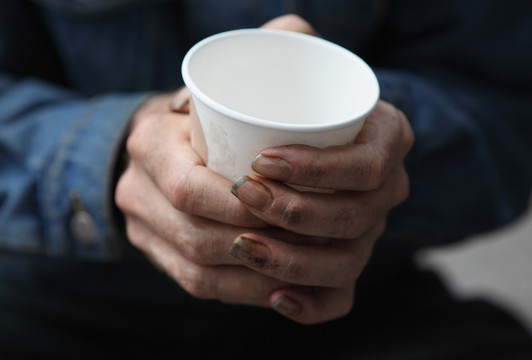“We are doctors who have to watch these people die,” said Dr. Emily Wood of the California State Association of Psychiatrists, a sponsor of the conservatorship bill, SB 43. “We have to talk to their families who know that they need that care, and we have to say we don’t have any legal basis to bring them into the hospital right now.”
Under current state law, a person can be held in the hospital involuntarily if they are a danger to themselves or others, or if they are unable to seek food, clothing or shelter as a result of mental illness or alcoholism. Doctors want to incorporate substance use disorder into the law and include in the criteria the inability to look out for one’s own safety and medical care. (Mental health conservatorship is separate from the probate conservatorship that Brittney Spears was held under.)
Dr. Wood, who practices in Los Angeles, gave two examples of people she and her colleagues tried to care for, but who slipped through the cracks under the current rules: a man didn’t take his diabetes medication because he wasn’t taking his schizophrenia medication and didn’t understand the consequences of not managing either condition. He repeatedly ended up in the ER with dangerously high blood sugar, but no one could compel him to take either medication, because poorly managing one’s health is not a trigger for conservatorship.
Another man had a developmental disability that was never treated in childhood and developed an addiction to methamphetamine in his 20s. He’s now regularly found sleeping in a park and acting inappropriately in public. His family begged doctors to treat him, but they can’t because drug misuse is not a trigger for conservatorship.
To Dr. Wood, treating these people, even when they’re unable to consent, is the compassionate, moral thing to do.
“It’s essential that we respect all the rights of our patients, including the right to receive care from us,” she said.
But other advocates and people with mental illness see the issue very differently. Lawyers from the nonprofit Disability Rights California say the expansion of conservatorship and the advance of CARE Courts are misguided, focused on depriving people of their liberty and privacy, instead of investing in better voluntary mental health services that maintain people’s dignity and civil rights. The group filed a lawsuit to try to block the implementation of CARE Courts.
They’re concerned that people of color, specifically Black residents who are overrepresented in the homeless population and overdiagnosed with schizophrenia, will be disproportionately targeted by these more forceful measures.
“When people are told that they have to go to court to get what they should be getting voluntarily in the community, and then they get a care plan that subjugates them to services that still do not meet their cultural needs, that is not compassion,” said Keris Myrick, an advocate who has schizophrenia and has experienced homelessness.
Opponents’ other main objection is focused on capacity. Once people are compelled into treatment, where in the overextended, understaffed public mental health system are they supposed to go? Already, there aren’t enough psychiatric hospital beds or appropriate substance abuse centers or housing options for the people who need them, said Michelle Doty Cabrera, executive director of the California Behavioral Health Directors Association.
“Expanding conservatorships doesn’t solve for those structural issues around the lack of housing and the lack of funding for treatment services,” she said.
Cabrera’s group also questions the premise that forced treatment works. Especially when it comes to substance use disorder, research suggests compulsory treatment is less effective and could even be harmful, elevating overdose risk. In Massachusetts, people who were involuntarily committed for drug treatment were twice as likely to die from an overdose as those who received treatment willingly.
More broadly, if the ultimate goal of forced treatment is reducing homelessness — and easing the moral heartbreak of witnessing ill people sleeping on the street or using drugs in the open — then lawmakers are writing the wrong prescription, some researchers say.
“The problem of homelessness is that people don’t have housing,” said Dr. Margot Kushel, director of the UCSF’s Benioff Homelessness and Housing Initiative. “If you had all the treatment in the world and you didn’t have the housing, we would still have this problem.”
She compares homelessness to a game of musical chairs, where the kid on crutches is the one left standing when the music stops. In California, there are 24 units of affordable housing for every 100 very low-income households, she said, and people with mental illness or substance use disorder are the ones who have the hardest time competing for those scarce spots. That’s why they’re overrepresented among the homeless population, she said, not because conservatorship laws aren’t strong enough.
“If you try to fix the problem of homelessness by tinkering with the health care system, we’re not going to get anywhere,” Kushel said.
Supporters of involuntary commitments say both are needed: treatment and housing. The same lawmakers who are backing expanded conservatorship and CARE Courts are also backing efforts to increase the housing supply, including a $3 billion bond measure for the construction of small, neighborhood-oriented residences for people with mental illness.

